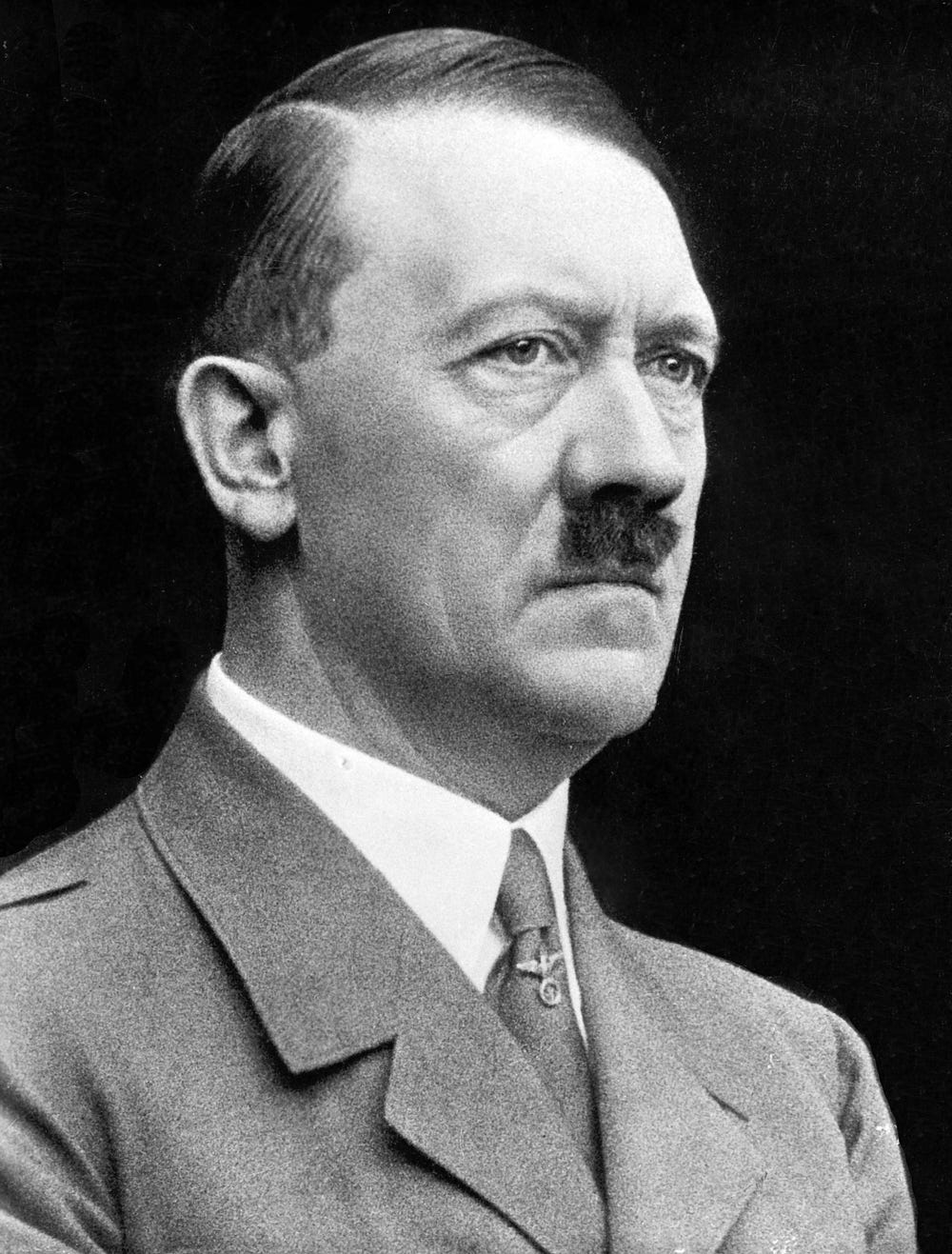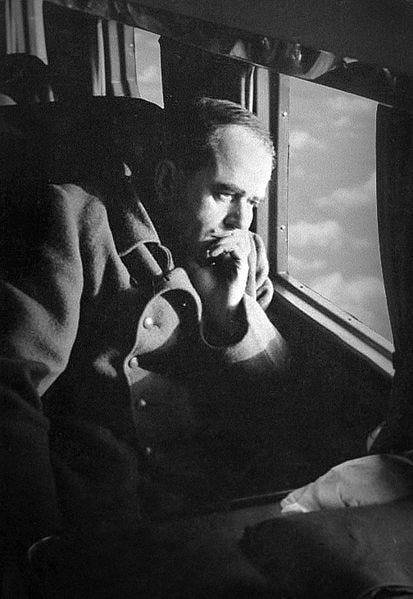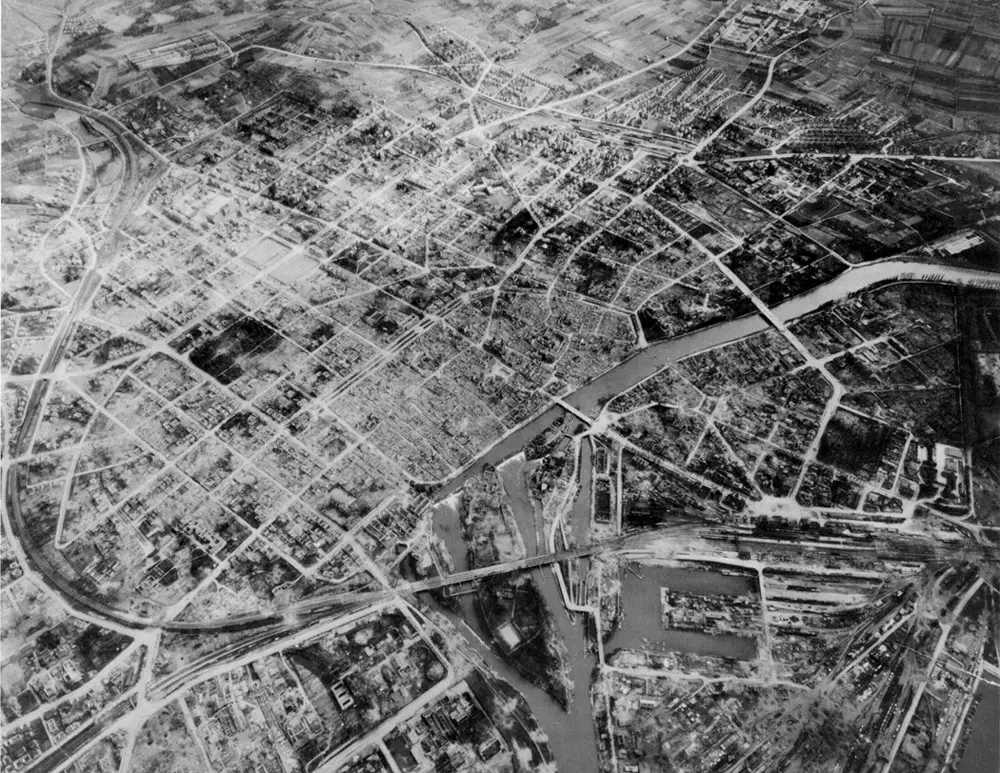 early 1945, Germany was about to collapse. Hitler had tried a last, desperate, counteroffensive against the Allies in Western Europe, called the Ardennes Offensive, but it had failed. In Eastern Europe, then, Russia was quickly entering the territory of those countries that Germany had previously conquered in the first years of World War II. With the USA and England to his right and Russia to his left, Hitler acknowledged that the war was lost. However, he was unwilling to accept the terms of unconditional surrender. So, Hitler had to find another solution.
early 1945, Germany was about to collapse. Hitler had tried a last, desperate, counteroffensive against the Allies in Western Europe, called the Ardennes Offensive, but it had failed. In Eastern Europe, then, Russia was quickly entering the territory of those countries that Germany had previously conquered in the first years of World War II. With the USA and England to his right and Russia to his left, Hitler acknowledged that the war was lost. However, he was unwilling to accept the terms of unconditional surrender. So, Hitler had to find another solution.
On March 19, 1945, Hitler enacted a decree known as “Nero Decree”. Officially, it was called “Demolitions on Reich Territory Decree”. Thanks to this legislative act, Hitler intended to destroy the German infrastructures to prevent their use by the Allied forces. This decree became known as “Nero Decree” after the Roman Emperor Nero, who organized the Great Fire of Rome in 64 AD.

The “Nero Decree”
“It is a mistake to think that transport and communication facilities, industrial establishments and supply depots, which have not been destroyed, or have only been temporarily put out of action, can be used again for our own ends when the lost territory has been recovered. The enemy will leave us nothing but scorched earth when he withdraws, without paying the slightest regard to the population.”
In these words, we can see Hitler’s fear of another “Shame of Versailles”. The concept of the “Shame of Versailles” had been one of the main strengths of Hitler’s propaganda when he was about to take power in Germany at the beginning of the 30s. This concept was grounded on the assumption that German leaders had not been able to negotiate a good armistice with the Great War’s winning states. During his rise to power, Hitler had pointed at WWI’s winning states as the responsible of several Germany’s issues such as its decadence and 1923’s hyperinflation. The same ending, another Treaty of Versailles, had to be avoided.
“Therefore, I order:
All military transport and communication facilities, industrial establishments and supply depots, as well as anything else of value within Reich territory, which could in any way be used by the enemy immediately or within the foreseeable future for the prosecution of the war, will be destroyed.”
Analogies with other systematic destructions of infrastructures
Even though this Decree may seem something foolish, the last act of a decadent dictator that has lost his power, there are still some analogies with other states. In particular, this kind of systematic destruction of infrastructures and facilities had already taken place at least twice in Russia. Both Napoleon’s Russian Campaign and Hitler’s Operation Barbarossa, France and Germany attempts to conquer Russia occurred in 1812 and 1941 respectively, had failed. One common reason why these operations had failed was Russia’s ability in systematically destroying its infrastructures, cultivated camps, and any other facility that could be useful for its enemies.
But there’s a difference too. While Russia’s destruction of its infrastructures was to slow down its enemies’ penetration within Russia, Hitler’s “Nero Decree” did not only have this aim in mind. Some historians argue that Hitler was furious with the entire German citizenship because, according to him, they had betrayed their homeland losing the war. In Hitler’s opinion, the Germans had not fought bravely enough, disrespecting him, the Nation and their ancestors. Also, citizenship should have worn the consequences of losing the war.

The Decree was in vain
The responsibility for carrying the Decree out fell to Albert Speer, Germany’s Minister of Armaments and War Production. Speer decided to disobey the order. Speer had lost his faith in the German dictator and he knew that the “Nero Decree” was just the legislative act of a madman. Hitler was unaware of Speer’s decision, at least until one of his last days. When Speer reached Hitler’s bunker in Berlin, he revealed the Führer the truth. Hitler was angry with him, but he didn’t order his killing.
And that was maybe another evidence about the fact that Hitler had become no more than the shadow of himself.

History, Politics & Economics – A place for uncomfortable truths.
michelecaimmi98[at]hotmail.com





